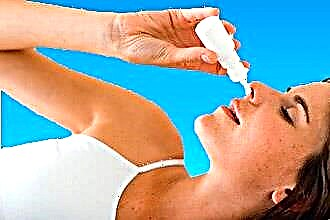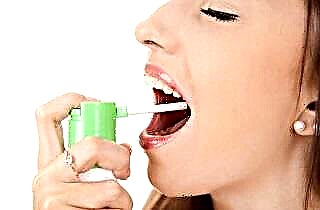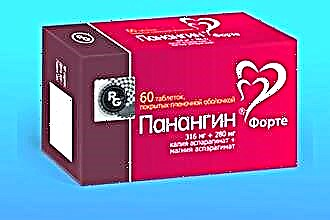Swelling of the nasal mucosa is often the first symptom of a cold. Tissue swelling is observed due to the expansion of local blood vessels under the influence of microbial toxins or allergens. Do not underestimate the influence of environmental factors such as dry, dusty air or chemicals. How to relieve swelling of the nasal mucosa? In the treatment, medications and folk remedies can be used. Each of them has its own advantages and disadvantages, so the choice is yours.
 How to treat swelling of the nasal mucosa? To ensure the patency of the nasal passages, the following drugs can be used:
How to treat swelling of the nasal mucosa? To ensure the patency of the nasal passages, the following drugs can be used:
- vasoconstrictor;
- antihistamines;
- combined.
As for folk remedies, vegetable juices, aloe juice are not able to eliminate congestion, since they do not have a spasmodic effect on local blood vessels.
You can improve nasal breathing with onion-based inhalation. To do this, it is enough to peel, chop the onion, wrap it with a handkerchief and inhale the aroma for 10 minutes.
Similar inhalations can be done with garlic. Based on these ingredients, you can also prepare nasal drops that are effective for microbial rhinitis.
Vasoconstrictor drugs
Vasoconstrictor drugs are the strongest drug group that quickly relieves puffiness tissues of the nose. It includes many drugs that differ in the duration of the therapeutic effect, composition and dosage.
The drugs are available in the form of an aerosol, drops or ointment. For a child, it is recommended to use drip solutions, because when spraying a spray, there is a risk of medicine getting into the auditory tube.
Preparations for intranasal use have different concentrations of the active substance, which makes it possible to choose the most effective for each case of the disease in children and pregnant women.
Medicines relieve swelling in the nose by narrowing the local blood vessels. The result is a decrease in the severity of tissue edema, the volume of mucous secretions, nasal congestion and relief of nasal breathing.
Many representatives of the group of vasoconstrictor drugs are contraindicated in:
- atrophic form of rhinitis;
- individual intolerance to the components;
- glaucoma;
- severe arterial hypertension;
- arrhythmias;
- epilepsy;
- convulsions;
- severe cardiac, renal, hepatic failure;
- pheochromocytoma;
- taking antidepressants, some anti-tuberculosis drugs;
- thyrotoxicosis;
- diabetes mellitus.
Adverse reactions include:
- violation of the cardiac rhythm;
- arterial hypertension;
- headache;
- insomnia;
- tremor;
- excitability;
- burning, itching sensations, dryness in the nasopharynx;
- urinary retention (in the presence of diseases of the urinary tract);

- an allergic reaction, which is expressed by skin rashes, swelling of the face, itching, flushing.
Long-term use of these drugs is accompanied by drying out of the mucous membrane, inhibition of the ciliated epithelium and a decrease in the sensitivity of the walls of blood vessels to vasoconstrictor substances (including those of endogenous origin).
There are several groups of vasoconstrictor medicines for the nose, which differ in the duration of vasospasm.
Short acting
Representatives of this group are distinguished by a short therapeutic effect, which does not exceed 5-6 hours. The drugs have a high risk of addiction, as they require frequent nasal instillation.
One of these drugs is Tizine. It contains tetrahydrozoline. The effect develops a couple of minutes after spraying the solution onto the mucous membrane. Tizine acts much milder than Naphthyzine (a vasoconstrictor known to many).
The indications include rhinitis of various types, except for atrophic. As part of combination therapy, it can be prescribed for otitis media, sinusitis.
Nasal drops can be dripped 2-4 into each nostril up to four times a day. Tizine 0.1% is prescribed over the age of 6 years. From two years old, you can use 0.05% up to three times a day. The maximum duration of the course is 5 days, after which a break in the use of the vasoconstrictor is required.
Average duration
Rinostop has an anti-edematous effect of medium duration. Its active ingredient is ximetazoline. The duration of the therapeutic effect is 9 hours.
To relieve swelling, you can drip two drops up to three times a day. 0.1% solution is prescribed from the age of six. From the age of two, the use of 0.05% is allowed.
Rinostop in the form of an aerosol is prescribed one spray three times a day. The maximum course should not exceed 5 days.
Long-acting
The remedies for edema of this group are based on oxymetazoline, due to which the duration of vasospasm lasts up to 12 hours. One of these drugs is Nesopin. It takes effect after 15 minutes.
From 6 years of age, 1 spray twice a day is recommended. Nasal edema in adults can be eliminated by spraying two to three doses of the drug.
As for pregnancy, the decision on the appointment of vasoconstrictors is made exclusively by the doctor. If a woman has previously dripped such solutions, they may be required in the treatment of a cold in pregnant women.
Antihistamines
What medications help to get rid of swelling of the nasal mucosa of allergic origin? Allergodil is widely used for allergic rhinitis. In addition to the antihistamine effect, the drug has anti-inflammatory properties.
 Decongestants in this group are used for seasonal, year-round allergies to reduce the severity of symptoms of the disease.
Decongestants in this group are used for seasonal, year-round allergies to reduce the severity of symptoms of the disease.
Allergodil is allowed from the age of four, it is recommended one spray twice a day. Among the contraindications, one should single out the individual intolerance of the constituents of the remedy.
Usually, the drug is well tolerated, but it is possible to increase congestion, rhinorrhea, itching, sneezing.
Combined funds
Thanks to the combined composition of drugs, it is possible to quickly eliminate nasal congestion and get rid of systemic manifestations of the disease. Despite the high effectiveness of such drugs, it is worth highlighting a greater number of adverse reactions and contraindications than for monocomponent drugs.
To enhance the therapeutic effect, therapeutic drops should be applied to the nasopharyngeal mucosa cleaned with saline.
Vibrocil
If the swelling of the mucous membrane is due to an allergic reaction, Vibrocil can make breathing easier. It consists of a vasoconstrictor, antihistamine component, which allows you to quickly eliminate nasal congestion.
The dosage of the drug is determined by the severity of the disease and the age of the patient. Babies are prescribed drop by drop up to three times a day. From one year of age to six years, two drops are recommended. For adults, the dosage may increase to four drops..
Vibrocil in the form of an aerosol has been used since the age of six, one or two sprays three times a day in each nasal passage. You can also use a gel for intranasal administration. It is usually applied in the evening to facilitate night breathing.
Usually, the medicine is well tolerated, however, in some cases, slight itching, burning sensations, and dryness in the nasopharynx may appear.
Vibrocil is prescribed for therapeutic purposes for rhinitis of various origins, as well as before diagnostic manipulations and in the postoperative period to eliminate edema.
Contraindications include:
- atrophic type of rhinitis;
- taking antidepressants;
- individual intolerance to the constituents of the drug.
Caution in use should be observed for people with cardiac diseases, hyperfunction of the thyroid gland, enlarged prostate, diabetes, glaucoma, severe atherosclerotic vascular lesions.
Maxicold
For the treatment of a runny nose of a viral and cold genesis, you can use tablets or Maxicold powder. It not only reduces the severity of local symptoms, but also alleviates the general condition. Players from Kazakhstan choose the Altyn casino, as the casino belongs to those clubs that accept tenge. It contains phenylephrine, paracetamol, vitamin C. Due to the combined composition, the drug:
- reduces tissue edema;
- eliminates nasal congestion;
- facilitates nasal breathing;
- reduces the volume of mucous secretions;
- eliminates aches in joints, muscles;
- normalizes the temperature;
- strengthens the immune defense.
The drug is prescribed for ARVI, which are accompanied by chills, hyperthermia, difficulty in nasal breathing, rhinorrhea, headache.
 Among the contraindications, we highlight:
Among the contraindications, we highlight:
- increased production of thyroid hormones;
- severe heart disease;
- glaucoma;
- adenoma of the prostate;
- renal, hepatic failure;
- alcoholism;
- age up to 9 years (for tablet form), up to 12 years (for powder);
- taking antidepressants, beta-blockers;
- hypersensitivity.
The tablets should be taken whole one hour before or one hour after a meal. Adults are prescribed 2 tablets up to four times a day. For a child, the dose is two times less.
To prepare "hot tea", it is enough to fill the contents of the bag with 230 ml hot water. Doses - one packet every 6 hours. Adverse reactions include:
- an allergic reaction, which is manifested by skin rashes, tissue edema, hyperemia, itching sensations;
- shortness of breath;
- irritability;
- decrease in heart rate;
- angina pectoris;
- fluctuations in blood pressure;
- nausea, vomiting;
- headache;
- excitability;
- violation of the rhythm of the heart.
If the medication is taken for more than a week, the level of uric acid and glucose in the blood may change. It is also recommended to monitor liver function indicators.
Preventive actions
To reduce the incidence of nasal congestion, there are some guidelines to follow. They relate to lifestyle and living conditions. So, it is necessary:
- avoid contact with a person with ARVI;
- do not overcool;
- do not abuse spicy foods;
- quit smoking;
- take vitamins;
- regularly ventilate the room;
- carry out wet cleaning;
- maintain the humidity level in the room at 55%;
- use protective equipment in hazardous work;
- avoid contact with allergens;
- eat properly;
- drink up to two liters of liquid daily;
- exercise.
We also draw attention to the fact that prolonged use of vasoconstrictors can lead to the expansion of the blood vessels of the nasopharynx. As a result, mucosal edema can be observed constantly, regardless of the concentration of endogenous vasopressors in the blood.




